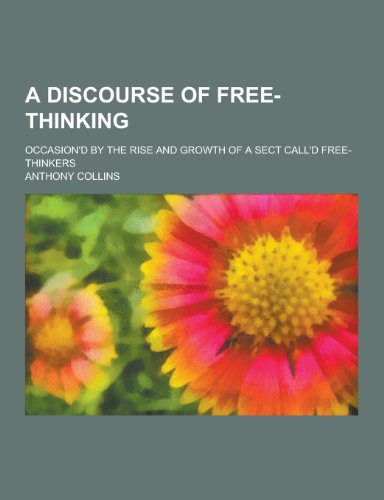What do you think?
Rate this book


40 pages, Paperback
First published January 1, 1713
Thus, sir, I have endeavored to execute your commands, and give you free leave to make any use you please of what I have written, with this limitation, that if you think so well of it as to commit it to the press, you would conceal your name, and let it go abroad without the credit of your approbation: For I think it virtue enough to endeavor to do good, only within the bounds of doing yourself no harm.Anthony Collins published all of his works anonymously, probably to avoid prosecution.